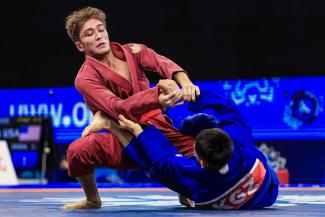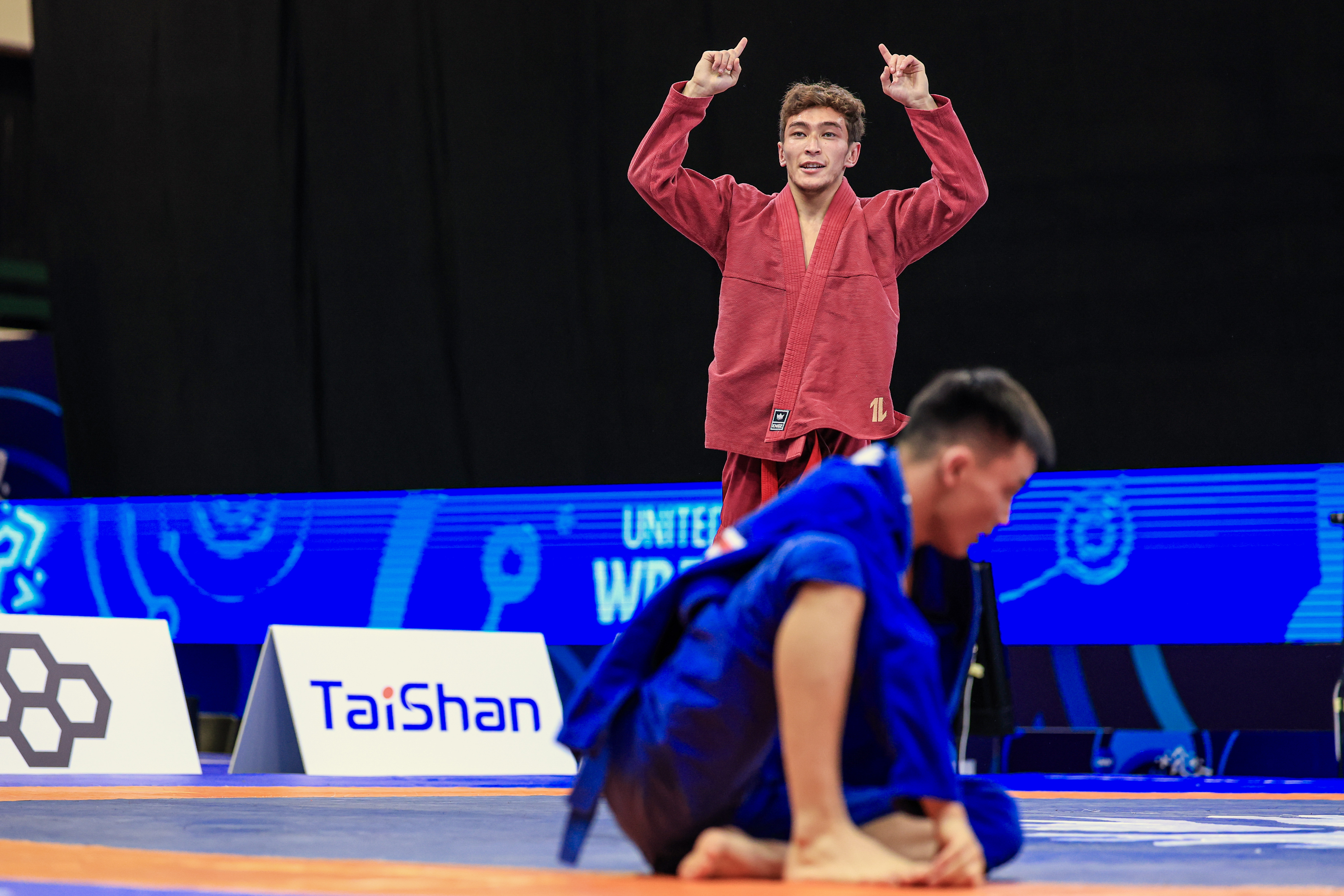UWW renews partnership with International Testing Agency (ITA)
Monday, March 6, 2023 - 20:25 By United World Wrestling Press

United World Wrestling (UWW), the world governing body for the sport of Wrestling, has renewed and expanded its partnership with the International Testing Agency (ITA) with a complete delegation of all areas of its clean sport program to the independent expert anti-doping body.
CORSIER-SUR-VEVEY (March 6) --- The UWW has been collaborating with the ITA since January 2019 with the objective to offer its athletes independent and expert-led clean sport programs. Now the world governing body for wrestling has decided to renew this partnership and delegate further areas of its clean sport program to the independent organisation, resulting in an anti-doping program fully managed by the ITA.
Three further areas of UWW’s anti-doping program have been handed over to the ITA in the beginning of February: the administration of Therapeutic Use Exemptions (TUEs) for wrestling athletes, the long-term storage of samples and education.
Applications for TUEs will be handled by the ITA’s International Therapeutic Use Exemption Committee (ITUEC), a network of some of the world’s best physicians and pharmacists with expertise in sports medicine, providing a confidential and respectful review of athletes’ medical information.
To increase the impact and deterrence factor of the UWW anti-doping program, the ITA has also devised a long-term strategy for samples collected from wrestling athletes. The retained samples may be analysed up to ten years after the collection date if new intelligence or information obtained from investigations provides specific evidence or if improved and further developed laboratory technology provides enhanced analysis. UWW samples will be stored in the ITA’s highly secured and ISO-certified Centralised Long-Term Storage Facility (CLTSF).

The ITA will also raise awareness against doping, support the UWW clean sport values, and contribute to doping prevention among all international amateur wrestling athletes with a dedicated series of webinars and by providing ongoing education support to UWW throughout the year.
“I wish to thank the UWW for their trust and ongoing commitment to offer their athletes a high-quality clean sport program run by the ITA,” said ITA Director General Benjamin Cohen.
“UWW have been one of the early adopters of an independently led anti-doping program and were among the first Olympic International Federations to collaborate with us. I am very pleased to see that over the past years our partnership has grown and that today the UWW is delegating all of its clean sport efforts to the ITA. We are very honoured by the trust placed in our organisation and will continue to do our best to protect their athletes and competitions in support of UWW’s values of unity, passion and integrity."
“The professional services delivered by the ITA have met all our expectations since the beginning and this is exactly what our athletes are entitled to demand,” said UWW President Nenad Lalovic. “It is therefore with complete trust that the UWW has not only renewed the partnership until end of 2024 but also delegated the full program to the ITA. We want our athletes to be confident that they compete in a clean environment, thanks to a dedicated team of experts”.
All other areas of the UWW's anti-doping program continue to be managed by the ITA with the same commitment to quality and efficiency following a comprehensive and intelligence-led approach. This includes the entire testing program for UWW, both in- and out-of-competition, the risk assessment and test distribution planning, the Athlete Biological Passport (ABP) management, the running of Intelligence & Investigations (I&I) activities and the possibility for the UWW community to confidentially share any actual or perceived doping offences via the ITA’s secure reporting platform REVEAL. The ITA is also responsible for the administration of whereabouts failures and independent results management of any potential anti-doping rule violations stemming from the UWW anti-doping program. All clean sport activities on behalf of the UWW are carried out by the ITA in strict compliance with the World Anti-Doping Code and its International Standards, with ITA’s dedicated Regulatory Compliance Unit ensuring full alignment with all mandatory rules.


 Alikhan ALSHINBAY (KAZ) celebrates after winning the 58kg final in Grappling Gi. (Photo: United World Wrestling / Amirreza Aliasgari)
Alikhan ALSHINBAY (KAZ) celebrates after winning the 58kg final in Grappling Gi. (Photo: United World Wrestling / Amirreza Aliasgari)
Share your thoughts.
Comments